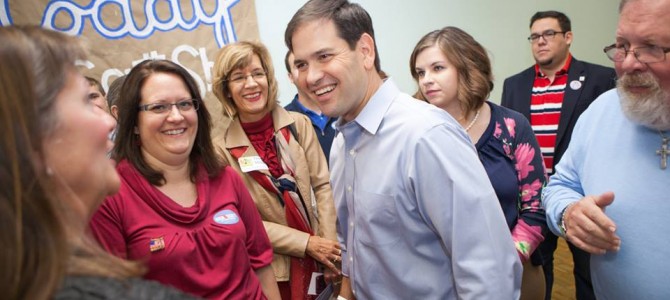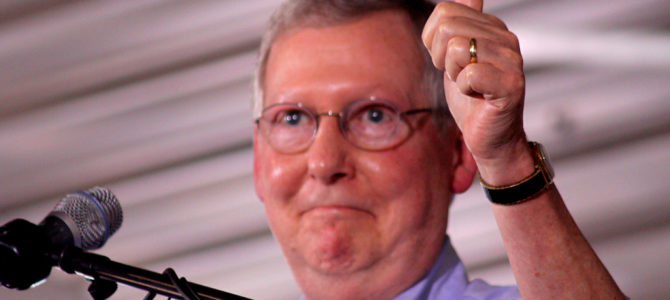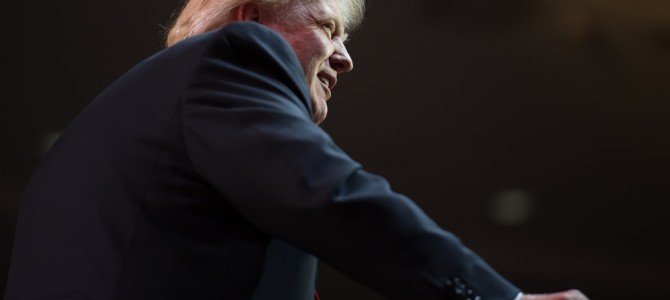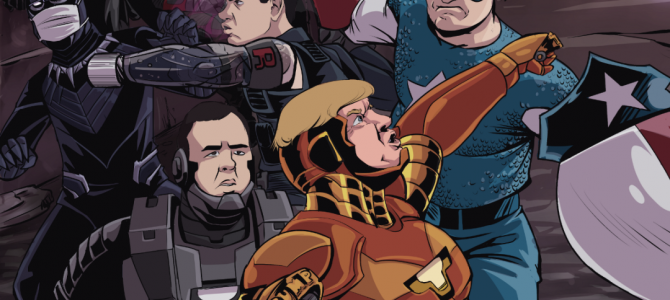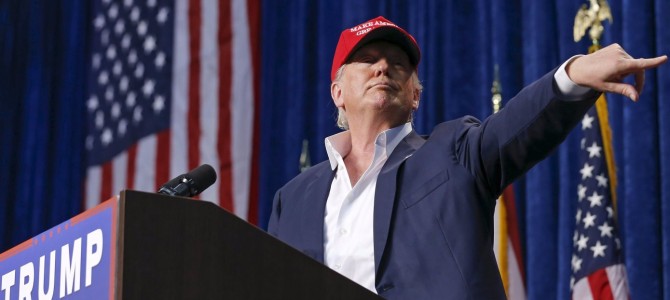In a Republican field this crowded, there’s always at least one candidate with more to lose by running for president than they could gain by staying out. Time and again in presidential politics we see candidates who don’t get in at the right time, either rushing to run too soon without necessary preparation or standing back and missing the opportunity to seize the nomination. Many of them run again the next time around, with trudging campaigns filled with regret for how they made a mess of things the last time – but more often than not, the damage is already done.
In 2012, the candidate whose brand was hurt the most by running was Rick Perry. He emerged from the cycle diminished from where he was before, and in the absence of that run, he might be the odds-on favorite in 2016. The candidates whose brand was hurt the most by not running were Mike Huckabee and Chris Christie – Huckabee could’ve eaten up chunks of those who backed Rick Santorum and populist candidates, while Christie, the hot property at the time among conservatives, emerged from the cycle remembered more for a lackluster convention speech and an unfortunate hug.
Who could be hurt the most in 2016 along similar lines? There are several potential figures in the field who could be hurt by not running in the right cycle, or by running and making a mess of things – but far and away the potential 2016 candidate who could embark on a run that is not in his best interests is Senator Marco Rubio.
Rubio’s current brand is appealing to most factions of the Republican Party. He started out as a socially conservative Huckabee backer with an inspiring story, was recategorized as a Tea Party candidate in his upset win over Charlie Crist, has demonstrated his ability to appeal to donor and grassroots conservatives alike, and is a rare younger champion for neoconservative views of America’s role in the world. His efforts on immigration reform earned him respect from moderates and business interests. He has embarked on a policy reform mission of late which has him being considered more seriously as someone who would like to take his party in new directions. And of all the potential 2016 candidates, he’s the one most likely to be credited for an inspirational speech, a witty line, or a smart pop culture reference.
All these aspects make Rubio seem like the kind of candidate who could win the nomination, and in handicapping the 2016 GOP field, some in DC seem to think he’s the strongest potential candidate. This, despite polling in New Hampshire. And Iowa. And South Carolina. These show him, consistently, seventh, and looking up at others with much bigger fundraising machines, executive experience, and larger ground games. Without significant stumbles by those candidates, it is very difficult to see Rubio’s path to victory in any of the first four states. That’s putting a lot of faith in that inspirational speech to make up ground.
The real challenge for Rubio early on is that he is mostly now known for just one thing among Republican primary voters: trying to lead on an immigration compromise with Barack Obama, and failing. Even at his book signing in Iowa, that’s the issue most associated with him at the moment, and it’s impossible to put it behind him. A rational evaluator would look at this circumstance and realize the opportunity in waiting to run in a few years, when the idea of Obama’s amnesty is less toxic and immediate, when he’s had an opportunity to lead with success in the Senate on a number of issues, and when he won’t be going up against a very strong field of leaders with executive experience. No one else this cycle faces the challenge of Jeb Bush as directly as Rubio: Bush will not just lap the field in fundraising, he is more popular in Rubio’s own state, and among many of Rubio’s own donors. That’s a unique handicap indeed.
Rubio has said that if he runs for president, he won’t run for re-election to the Senate. If this is true, it makes the risk of running enormous – essentially, it means he’s rolling the dice on his entire political career. Ted Cruz has a safe seat and can entertain a run without risking it, but Rubio has a much more challenging future for running statewide. And the alternate Senate-based path for Rubio is an appealing one: he can run for re-election and could be well on his way to becoming the consensus floor leader in a few years. Rubio’s gifts are real: he’s a great communicator, doesn’t make the party look stupid, and is good at keeping people together. He’s tactically aggressive, but at his best training fire on the other side, not inside his coalition. He’s got much of the toolset one would want in a caucus leader, and the base that might condemn his immigration views would assuredly welcome him compared to the other potential candidates.
Running for president might benefit those who view Rubio as a vehicle for their views, one more inspirational and appealing than the alternatives. But the reality is that running in this cycle is not in Rubio’s best interest, and of the potential 2016 candidates, he has the most to lose.
